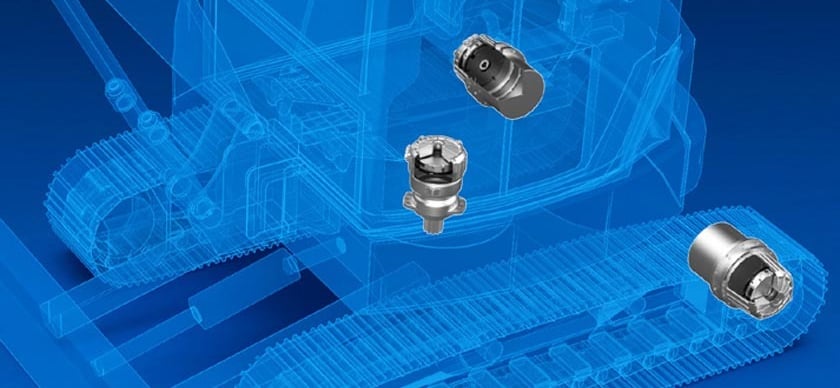What Type of Motor is Used in Excavators?
2/7/2017


Excavators are essential pieces of heavy machinery used in construction, mining, and various earth-moving applications. They rely on different types of motors to perform their complex tasks. Understanding the types of motors used in excavators involves looking at both the primary drive system and the various auxiliary systems that support its operation. Here, we will explore the key motor types used in excavators, focusing on their roles, advantages, and technological nuances.
1. Diesel Engines
Diesel engines are the most common type of primary motor used in excavators. These engines power the hydraulic systems that control the machine's movements, including the boom, arm, bucket, and tracks.
Advantages:
High Torque: Diesel engines provide the high torque necessary for heavy lifting and digging operations.
Fuel Efficiency: Modern diesel engines are designed to be fuel-efficient, which is crucial for cost-effective operation in the field.
Durability: Diesel engines are known for their robust construction and long operational life.
Technological Features:
Turbocharging: Many diesel engines in excavators are turbocharged to improve power output and efficiency.
Emission Controls: To meet stringent environmental regulations, these engines often incorporate advanced emission control technologies such as SCR (Selective Catalytic Reduction) and DPF (Diesel Particulate Filter).
2. Hydraulic Motors
Hydraulic motors play a critical role in excavators by converting hydraulic energy into mechanical energy, driving the movement of various components.
Advantages:
Precision Control: Hydraulic motors provide precise control over the movements of the boom, arm, and bucket.
High Power Density: These motors are capable of delivering high power relative to their size, making them ideal for the compact spaces within an excavator.
Types of Hydraulic Motors:
Piston Motors: These are often used for the main hydraulic functions due to their high efficiency and durability.
Gear Motors: Commonly used in auxiliary systems, gear motors are simpler and less expensive but still provide reliable performance.
3. Electric Motors
While traditionally less common, electric motors are becoming more prevalent in modern excavators, particularly in hybrid and fully electric models.
Advantages:
Environmental Benefits: Electric motors produce no direct emissions, making them environmentally friendly.
Lower Noise: These motors operate more quietly than diesel engines, which is beneficial in urban construction sites.
Efficiency: Electric motors can offer higher efficiency, reducing operational costs over time.
Applications:
Hybrid Excavators: These use a combination of diesel engines and electric motors to improve fuel efficiency and reduce emissions.
Fully Electric Excavators: Increasingly popular in markets with stringent emission regulations, these machines rely entirely on electric motors for all functions.
4. Stepper and Servo Motors
Stepper and servo motors are used in specific control systems within the excavator, such as in the control of valves and other precision components.
Advantages:
High Precision: These motors offer excellent precision control, which is essential for tasks requiring fine adjustments.
Quick Response: They are capable of rapid response times, enhancing the machine's overall responsiveness.
Technological Features:
Feedback Systems: These motors are often integrated with feedback systems (like encoders) to provide accurate control over the excavator’s movements.
Conclusion
The choice of motor in an excavator depends on the specific requirements of the application, including power needs, efficiency, and environmental considerations. Diesel engines remain the primary choice for most excavators due to their power and durability. However, hydraulic motors are indispensable for converting hydraulic energy into mechanical motion, while electric motors are gaining traction for their environmental benefits. Additionally, stepper and servo motors play crucial roles in precision control systems. The integration of these various motor types ensures that excavators can perform a wide range of tasks efficiently and effectively.
GHS Motors
Focus on aftermarket travel motors and swing motors of construction machinery.
Get a quick quote
Customer service
© 2024. All rights reserved.
Powered by GlobalHydraulicSystem.com
Asset of Quanzhou Fulian Machinery Equipment Manufacturing Co., Ltd.
Order direct talk
